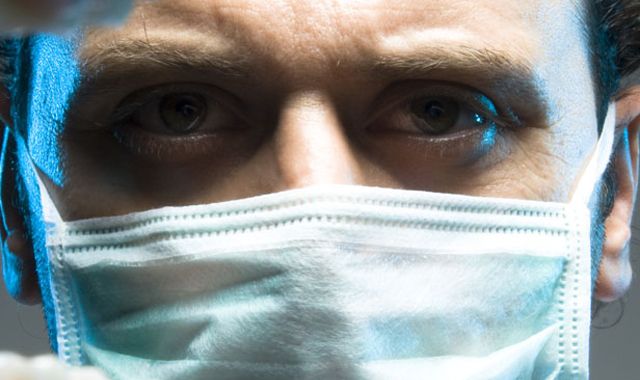11,000 dental patients potentially exposed to HIV, hepatitis in clinic hygiene breaches
Almost 11,000 Australian patients have been warned that they may have been exposed to HIV, hepatitis and other blood-borne diseases due to appalling hygiene negligence in Sydney dental clinics.

Almost 11,000 Australian patients have been warned that they may have been exposed to HIV, hepatitis and other blood-borne diseases due to appalling hygiene negligence in Sydney dental clinics.
Australian health authorities have been contacting patients who attended one of four practices accused of poor hygiene and infection control procedures and substandard equipment sterilization. The investigation into the practices began after a complaint was filed last November, citing concern about unsterilized or improperly sterilized instruments being used at the practices; since then, six dentists have been suspended and six have had conditions placed on their licenses. Several staff members at one practice were also suspended for poor hygiene controls.
Related reading: Discussing current hot topics in dental infection control
Health authorities acknowledged that most dentists adhere to the stringent infection control guidelines; Dr. Shane Fryer from the Dental Council of NSW said that most dentists try to do the right thing. However, one suspended dentist admitted to the Sydney Daily Telegraph that he was “behind the times” on infection control protocol, but that he had adopted new procedures and standards since the investigation.
While no evidence of infection or transmission of any diseases has been found, health authorities have cautioned those who underwent invasive procedures at the clinics. “ It’s important to stress that … at this point, that no transmission has occurred,” stated Jeremy McAnulty, NSW Health director of health protection. “ But, the experts have been concerned in light of the reports of the problems with infection control facilities, that a risk is there.”
The practices remain open, but are being closely monitored by health authorities.
The infection scare closely resembles the incident in Tulsa, Okla, in 2013, when dentist W. Scott Harrington was accused of using rusty equipment and dirty needles, resulting in dozens of his patients testing positive for blood-borne diseases. The Tulsa health department sent letters warning 7,000 patients of potential exposure to infection at the practice.
Related reading: News of rogue Tulsa-based oral surgeon prompts ADA infection control statement
“The basic things that everyone knows – follow CDC guidelines, use clean syringes, don’t reuse multi-dose vials in multiple patients, don’t use rusty equipment – those are things even non-physicians know,” Oklahoma Board of Dentistry Board President Susan Rogers told ABC News. “Those are basic things. That part makes it egregious.”
Out of the 7,000 patients, 4,202 were tested at state clinics for signs of infection. 89 tested positive for hepatitis C and four for HIV. Five others tested positive for hepatitis B, which was ruled to be unrelated to Harrington’s poor infection control practices. It was the United States’ first known outbreak of hepatitis C among dental patients.
In 2014, the Oklahoma Board of Dentistry voted to accept the permanent surrender of Harrington’s license. Several former patients also filed lawsuits against Harrington, who stopped practicing after the hepatitis outbreak became public knowledge in March 2013.
Trending article: Man who aspirated dental drill bit loses $430K court case
The ADA has long recommended that all practicing dentists, dental team members and dental laboratories use standard infection control protocols as outlined by the Centers for Disease Control and Prevention’s (CDC) Infection Control in Dental Health Care Settings guidelines. Studies show that following proper infection control procedures greatly reduces risk of disease transmission to patients.
Floss and Flip Flops Episode 13: The Focal Point of Infection
January 10th 2023The Sanders Sisters jump into 2023 with a discussion of the many conditions that display some of their earliest symptoms in the oral environment, and all the ways this can connect to systemic issues that can become serious health challenges for patients.
Floss & Flip Flops Episode 12: The 12 Medical Conditions of Concern…and a Partridge in a Pear Tree
December 2nd 2022Join the Sanders Sisters as they welcome the holidays and the last episode of their first season of Floss & FlipFlops! In this episode, the sisters discuss the 12 medical conditions on Santa’s list that can indicate a bigger systemic complication, and how you can integrate your knowledge of these conditions in helping your patients achieve lifelong health!
Oral Health Pavilion at HLTH 2024 Highlighted Links Between Dental and General Health
November 4th 2024At HLTH 2024, CareQuest, Colgate-Palmolive, Henry Schein, and PDS Health launched an Oral Health Pavilion to showcase how integrating oral and general health can improve patient outcomes and reduce costs.